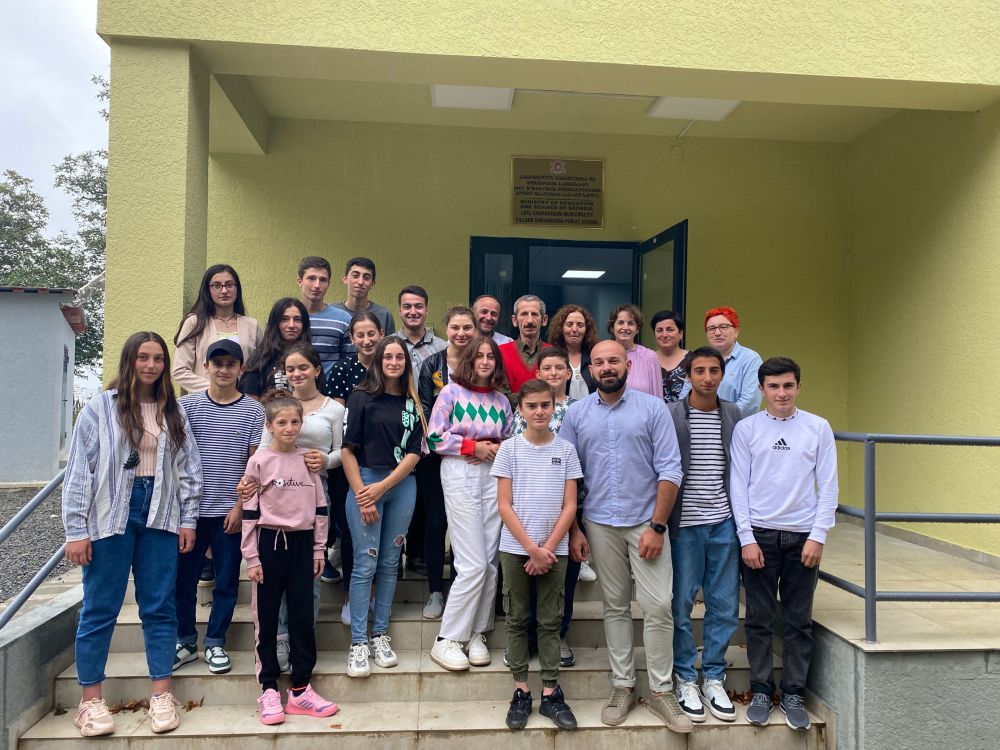MEDIA

Pierre Biedermann, CCEH Company’s International Expert in Environmental and Social Issues Engages in Bakhvi 1 HPP Studies
The Bakhvi 1 Small HPP Project planned on the river Bakhvistskali by CCEH Hydro VI has moved to an in-depth studies phase. The company carries out studies in full compliance with the legislation and regulations of Georgia, as well as environmental and social management standards of international financial institutions IFC and EIB, which implies the engagement of highly qualified international and local experts in specific studies. In fact, these standards are a roadmap for the company helping determine what type of studies and mitigation measures shall be employed to minimize impact on the environment and humans.
Pierre Biedermann, international expert in environmental and social aspects with 25 years of experience, is a CCEH Hydro VI company's independent expert. All studies intended to be carried out at the environmental impact assessment stage are being planned with his direct involvement. Pierre Biedermann has already engaged in development of the climate change risk assessment report for Bakhvi 1 HPP. He is well-versed in internationally recognized approaches and methodologies to carry out such studies.
Pierre Biedermann is a founder of the French Consulting Company Alpage SARL in the area of environmental and social issues management. His company supports with expert advice project managers around the world and assists them in proper management of environmental and social issues during the construction of HPPs. Also, he served as an Advisor and Associate Director of the European Bank of Reconstruction and Development (EBRD) for many years.
Pierre Biedermann was on a business visit in Georgia and examined again the Bakhvi 1 HPP project area once again. Here is an interview we recorded during his visit to Georgia.
Q: What kind of challenges are there when implementing the Bakhvi 1 HPP project?
P. Biedermann: Bakhvi 1 HPP project area is located in a rather narrow gorge with complicated terrain. Therefore, it is not in close vicinity of and direct contact with the populated areas. With this factor in mind, in the event the project is implemented in this area, the company will face two types of challenges. One is related to environmental issues, and second is related to complying with safety standards at the construction stage to prevent any potential threat given the specific location of the project area.
Q: How would you assess the climate change risk?
P. Biedermann: As we know, global warming triggers climate change globally. With regard to potential adverse effects that the project may have on local climate, it is worth noting that there is no scientific evidence, which would indicate any link between small HPPs and climate change. No case can be found in the world that would confirm any effect of small HPPs on climate change, including in Georgia. This issue can be only considered with regard to large-scale HPPs with large reservoirs, which cause flooding of 10 thousand square meters of the surrounding area. Small HPPs, like Bakhvi 1, the dam pond of which is small, will have no effect on the climate.
Q: What is your role in the biodiversity study process?
P. Biedermann: Definitely, I am involved in additional studies carried out by the company for the Bakhvi 1 project. As an independent expert, I oversee all ongoing and planned studies and assist the team to ensure that each study, be it a biodiversity or social study, is conducted in compliance with the international standards. The company is fully committed to be in compliance with these standards. For instance, we ensure that the biodiversity studies are carried out in the appropriate season and in the appropriate area.
Q: Is it planned to have the cumulative impact assessment, in the light of existing and planned HPPs?
P. Biedermann: We do study cumulative impact for each project. The study implies to examine the type of potential adverse inter-relationships that may be established between the projects within the Bakhvi 1 HPP project area. We know that there is another HPP operating on the river Bakhvistksali. Thus, our aim is to study in detail both all potential adverse aspects and opportunities.
Q: How will be planned the issues related to social aspects?
P. Biedermann: When we consider the social aspects for such a small HPP as Bakhvi 1 is, there are several areas to focus on. First and foremost, it should be identified whether a project will have any effect on local residents' property, agriculture, or income; later, during the HPP construction and operation phases, focus will be on safety issues. An integral part of the process is organizations of meetings with all stakeholders and discussions on developed mitigation measures, planned as a part of the project.
like




